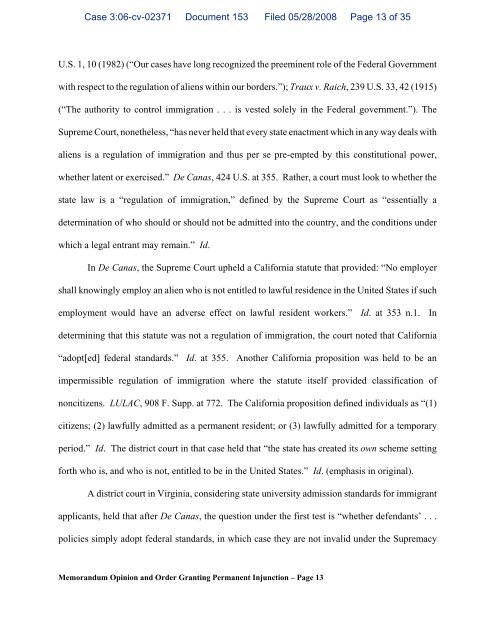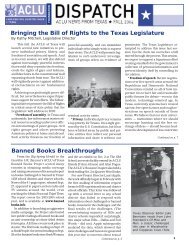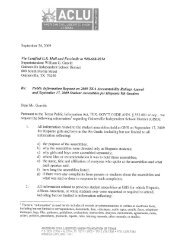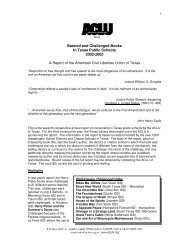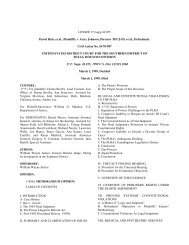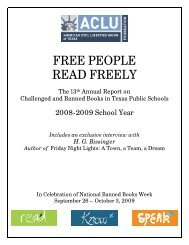Order Granting Permanent Injunction - maldef
Order Granting Permanent Injunction - maldef
Order Granting Permanent Injunction - maldef
You also want an ePaper? Increase the reach of your titles
YUMPU automatically turns print PDFs into web optimized ePapers that Google loves.
Case 3:06-cv-02371 Document 153 Filed 05/28/2008 Page 13 of 35<br />
U.S. 1, 10 (1982) (“Our cases have long recognized the preeminent role of the Federal Government<br />
with respect to the regulation of aliens within our borders.”); Traux v. Raich, 239 U.S. 33, 42 (1915)<br />
(“The authority to control immigration . . . is vested solely in the Federal government.”). The<br />
Supreme Court, nonetheless, “has never held that every state enactment which in any way deals with<br />
aliens is a regulation of immigration and thus per se pre-empted by this constitutional power,<br />
whether latent or exercised.” De Canas, 424 U.S. at 355. Rather, a court must look to whether the<br />
state law is a “regulation of immigration,” defined by the Supreme Court as “essentially a<br />
determination of who should or should not be admitted into the country, and the conditions under<br />
which a legal entrant may remain.” Id.<br />
In De Canas, the Supreme Court upheld a California statute that provided: “No employer<br />
shall knowingly employ an alien who is not entitled to lawful residence in the United States if such<br />
employment would have an adverse effect on lawful resident workers.” Id. at 353 n.1. In<br />
determining that this statute was not a regulation of immigration, the court noted that California<br />
“adopt[ed] federal standards.” Id. at 355. Another California proposition was held to be an<br />
impermissible regulation of immigration where the statute itself provided classification of<br />
noncitizens. LULAC, 908 F. Supp. at 772. The California proposition defined individuals as “(1)<br />
citizens; (2) lawfully admitted as a permanent resident; or (3) lawfully admitted for a temporary<br />
period.” Id. The district court in that case held that “the state has created its own scheme setting<br />
forth who is, and who is not, entitled to be in the United States.” Id. (emphasis in original).<br />
A district court in Virginia, considering state university admission standards for immigrant<br />
applicants, held that after De Canas, the question under the first test is “whether defendants’ . . .<br />
policies simply adopt federal standards, in which case they are not invalid under the Supremacy<br />
Memorandum Opinion and <strong>Order</strong> <strong>Granting</strong> <strong>Permanent</strong> <strong>Injunction</strong> – Page 13


